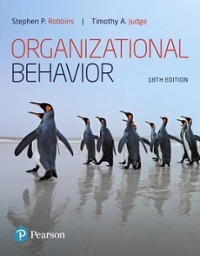Many business students are familiar with the pressure to get internships or part-time jobs in their career
Question:
Many business students are familiar with the pressure to get internships or part-time jobs in their career field while in school. The surest route to the career track for many is to take on these limited-duration work assignments. Internships do give employers an easy way to size up potential applicants in a setting identical to the one in which they would perform. And unlike employees, interns are easily terminated if they don’t pan out. It’s the same situation for part-time or summer workers, who are sometimes let go at a moment’s notice.
Internships are such a powerful tool for finding jobs that some students have begun to take on low-paid or even unpaid work assignments. While such internships used to be associated primarily with large organizations, many startups have begun to attract students. For example, Remy Agamy took an internship at a three-person design company, knowing that it wasn’t likely to turn into a job. Still, in the job market she found that other prospective employers were keen on learning what she’d done in this internship. “I think we talked more about my eight-week internship than my four years of consulting experience,” she said. The value of internships for students, however, has long been questioned. While there may be a promise of a chance to learn, many students complain of doing little more than acting as unpaid, unskilled labor. Christina Isnardi is one student who felt exploited by the system. She described working 16- or 17-hour days at Lions Gate Entertainment, doing work like taking breakfast orders or working in locations far from the actual film set, which Isnardi mentioned made her “feel as though our dreams are holding us hostage to this unfair, unethical labor practice.” Isnardi’s experiences are not uncommon. Interns working for organizations as diverse as MTV, Warner Music Group, and Madison Square Garden describe similar experiences, which is why all these organizations have faced lawsuits from former interns.
Questions
1. If you were an HR professional at Lions Gate Entertainment, how might you evaluate Isnardi’s claim of exploitation? What changes might you suggest to top management and to managers?
2. What specific characteristics would you look for in an internship?
3. Do you think interns who feel they’ve had a negative or exploitive relationship with a company should file lawsuits? Why or why not? What types of company actions might make you think a lawsuit is justified?
Step by Step Answer:

Organizational Behavior
ISBN: 9780134729329
18th Edition
Authors: Stephen RobbinsTimothy JudgeTimothy Judge, Timothy Judge





